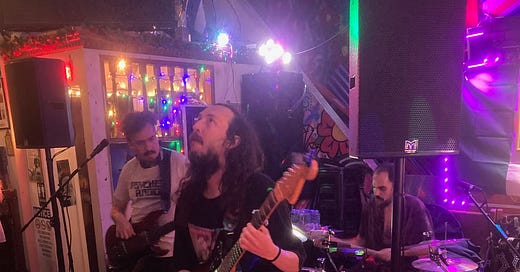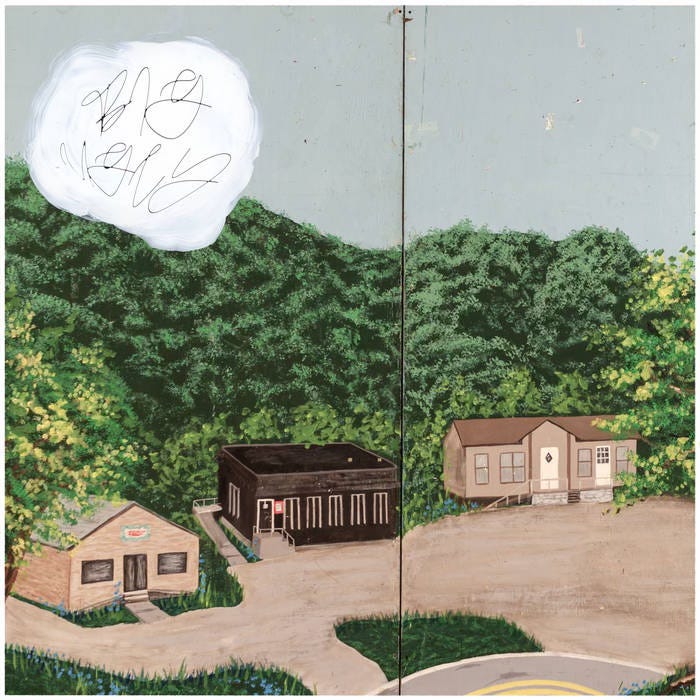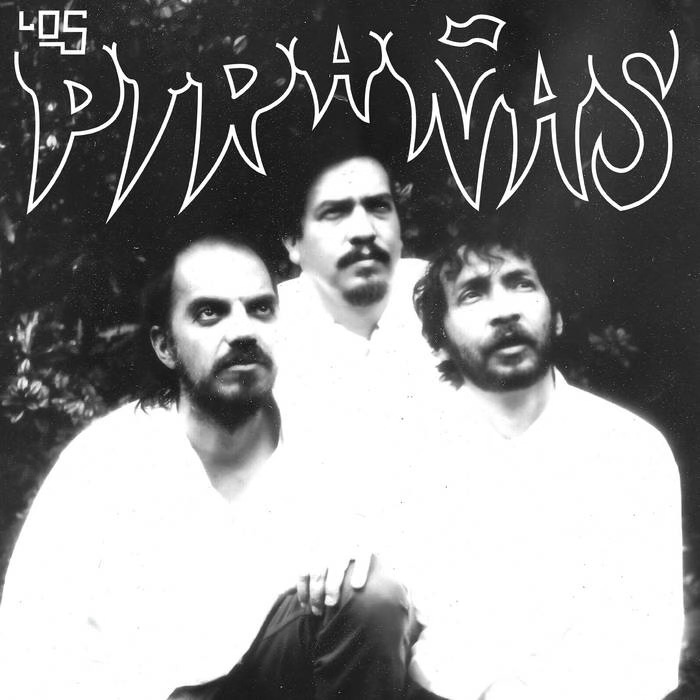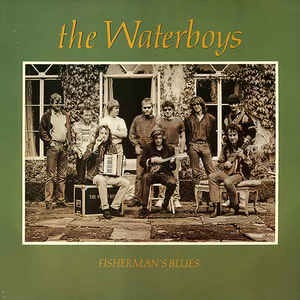As we’ve written about, we here at 6OGs HQ don’t just love music itself; we love movies and books about music, and, since we are alive in the 2020s, we of course have our favorite podcasts. Sound Opinions (which began as and remains in some places a radio show), Bandsplain, the two “60 Songs” series, A History of Rock in 500 Songs, and on. But for several of us, Indiecast is the one we make sure to listen to each week. And among the many recurring themes from co-hosts and veteran music writers Stephen Hyden and Ian Cohen, one of the best has been Patio Music. There’s no specific description, but we all have a core sense of what it means: music that is perfect when you’re outside, with the sun shining, no worries on your mind, and a cold beverage close at hand. As OG Brian emphasizes below in his description, the weather is beginning to warm in most of the United States, and this is just the music we turn to at this time of year. So for this installment, we feature three proposed entries into the 3A6OGs Patio Music Playlist: Fust, Los Pirañas, and the legendary Waterboys.
New Album (and also from a recent show): Big Ugly by Fust. It’s finally warm outside! Well, not at the moment. It’s April in DC, after all. In 24 hours, you can go from 75 and sunny to 57 and cloudy with a little rain, as recent weekends have proved. But after a winter in which we received more snow than in the previous several years combined, I’m practically giddy over the ability to occasionally fire up the backyard grill or go to a baseball game without freezing your tail off (a 50/50 proposition during the first few weeks of the baseball season in the northeast corridor), especially in that brief time period in the District before it becomes perpetually 98 and humid. And as we spend more time outdoors, it’s important to think of the best music to soundtrack your activity, which brings me to the sub-genre that critic Steven Hyden has dubbed “patio music” –- tunes that are perfect for sitting in your backyard, drinking a beer, maybe firing up the grill, or just plain chilling. Here’s a good way to illustrate it. Jason Isbell? Absolutely patio music. Militarie Gun? Great stuff, but not most people’s definition of patio music.
Fust – an alt-country band from Durham, North Carolina that recently put on a great (despite some early technical issues; more on this later) sold-out show at Silver Spring’s Quarry House Tavern – released their latest album, Big Ugly, in early March, and it’s both one of the best albums of the year so far and the perfect excuse to take the portable speaker outside with your drink of choice. Fust are signed to Dear Life Records, and Big Ugly fits right in with some of that label’s best, including Manning Fireworks, the 2024 album by 3A6OG favorite MJ Lenderman, and Florry’s 2023 release The Holey Bible.
Listen to Fust, and it’s clear that their sound owes a debt to the alt-country mini-boom of the late ‘80s and early ‘90s – Uncle Tupelo, The Jayhawks, The Bottle Rockets. Lead singer and songwriter Aaron Dowdy grew up in southern Virginia, but the album’s title comes from a region of neighboring West Virginia, where some of Dowdy’s relatives lived; even the cover artwork depicts the area’s Big Ugly Community Center.
Dowdy’s influences can be felt throughout the album, starting with the lead single and opening track, “Spangled.” The song mixes crunchy guitars, pedal steel, fiddle, lyrics that, instead of telling a particular story, evoke a feeling or an idea of a certain corner of Americana (“Well the rain is hard and it pulls up / Pulls up hard in a septic ditch / But not enough to drown me out / So I’m left looking up at this”). Dowdy gets specific in the details that matter but leaves mystery elsewhere. It doesn’t really matter who Amy or Kevin are, and it doesn’t really matter whose point of view the song takes. When Dowdy sings, “Couldn’t they make it rain a little more? Fill this ditch up to the brink / ‘Cause I’m not trying to spend my final days in a Shenandoah precinct,” we may not know exactly whose story this is, but it’s compelling nonetheless.
The second single, “Bleached,” is a ballad that manages to evoke feelings or concepts even more than it tells a specific story. The song starts as a soft acoustic number and gradually crescendos into a full mid-tempo jam about young people floating around during summer with their “boring angels.” “Gateleg” adds twang to bar-band guitar and piano chords, with a classic sing-a-long Americana chorus (“You ain’t gonna work on the line no more / You’re gonna work at Maggie’s store”) that belies a story about attempted connections in spite of the occasional roadblock (“I still remember you walking down the mountain / With that gateleg you built her / ‘Cause you remembered that the car was propped / Up on cinders at Jerry’s lot”).
“Mountain Language” rocks the hardest on Big Ugly, with churning chords and descriptive, visual lyrics that both bring to mind Drive-By Truckers around the time of Southern Rock Opera and The Dirty South (“You can’t even find work at the Country Boy / Selling gas station drugs / To take care of your sister Dallas / She’s a little, a little older than us”). “Goat House Blues” is a rollicking road song about moving on, but one that asks more questions than it answers (“Did they even like drinking with me? / And did they think me escaping would fix things?”) and ends up contemplating that “being free … ain’t half as rewarding.” Conversely, “Doghole” might be the album’s most tender song, with Dowdy singing about how “we do our best, but the best-laid plans often go missing.”
As mentioned earlier, Fust’s show at the Quarry House began with some unexpected technical issues (for the first few songs, Dowdy’s mic was way down and his vocals were tough to hear, and this was unexpected because the audio for the opener – DC alt-country band Heaven Forbid – was just fine). During and after this brief hiccup, though, the band was in fine form and good spirits. Fust performed most of the tracks from Big Ugly along with songs from their previous releases. And the crowd was amped. I don’t think I’d ever been to a fully sold out show at the Quarry House before, and OG Brad and I commented to each other that Fust could have easily filled a slightly larger venue. I’m grateful for the chance to see Fust in such a small space (although given that I’m generously described as “not tall” and Fust apparently attracts a large following of 6’2” or taller dudes, I use the word “see” euphemistically; I normally have strategies for getting a good view at a show but in this case my smartest move was to grab another whiskey, head toward the back, and simply enjoy the tunes).
Fust’s Big Ugly is one of my favorites of the year so far, and I expect it to remain so deep into the spring and summer when I’m sitting out on the deck. At least until it hits triple digits and I’m begging for the air conditioning. (Brian)
Album from an upcoming/recent show: Una Oportunidad más de triunfar en la vida by Los Pirañas. There are three things that make the new album (the title translated in English means “One more opportunity to succeed in life”) from this Bogota-based trio perfect for patio enjoyment:
There are no lyrics. So if you’re outside with friends or family, the words aren’t interrupting anything.
There are no lyrics. In a world where there is so much talking, yelling, and emoting, it’s nice to let other parts of your body do the work and let your brain rest. Especially your hips and legs, as this is just a great album to groove to, which the band proved at a recent show in a tiny club in DC.
There are no lyrics. If you’re by yourself on the patio, maybe you doze off, or at least zone out and daydream. An album like this is designed to come in and out of. You won’t come back to focus with a need to rewind; the music will have seeped into your consciousness, in whatever way it does, and the next time, you’ll find yourself surprised to remember the parts you thought you’d missed.
You’ll know if this album is for you from the opening minute of the opening track, “El Nuevo Prometeo” (or, “a new Prometheus”). Like the mythical figure who brought fire to humanity, the track sets fire from the jump, with a catchy guitar riff from Eblis Alvarez that leads to a simple but instantly toe-tapping drum beat from Pedro Ojeda, and a bass line Mario Galeano that takes the movement from your toes and feet to your whole body. The track rolls along for a minute or so before Alvarez comes back with a few measures of a new riff that not only sticks in your mind, it just opens up the whole track for the other players. The trio works so seamlessly that you will close your eyes and imagine at least 6-7 band members must be going at once.
The members of Los Piranas are veterans, mainly of punk and metal. The world of improvising jazz, Latin, and even West African sounds have come later to them, which gives the album a level of energy and rhythm that’s unusually infectious because it’s not overly technical or intricate at any point. It’s designed less for a specific dance than simply to make you move, whatever that means for you. Listen to the opening section of “Educados por Condorito (Y Don Ramon)(or, “educated by Condorito and Don Ramon; Condorito being a Chilean comic book series),” and you’ll get a sense of what I mean; stay with the track for about a minute, close your eyes, and the guitar strumming and stepped-up pace of the rhythm section will have you thinking you’re hearing a Latin cover band taking on an obscure mid-80s Metallica song. But in the best possible way.
Several reviews have referenced Captain Beefheart in discussing the second track, “el aguazo de Javier Felipe (or, “Javier Felipe’s gouache”),” mainly for how it breaks down in the middle with each player following a different direction and introducing a much bluesier feel. But I hear less of that, honestly, than simply a jazz trio taking the necessary turns to flex their muscles before coming back together. I am hardly a Beefheart afficianado or expert, but I’ve certainly listened to my share of Troutmask Replica and the other canonical records, and, in the end, they take work to stay engaged with. The rhythms get overly complicated, the ideas start to fall in on themselves, and, frankly, the singing and lyrics begin to distract.
None of that happens with Los Pirañas - the ideas always remain clear, the rhythms steady, and again, there is the blessed absence of lyrics. If there is a song with Beefheart-ian breakdowns, it’s “Con mi burrito sabanero voy directo al matadero” (or, “With my little donkey from the savannah I go straight to the slaughterhouse”); the title alone is a give-away. The song “Pateando culos” (or, “kicking ass”) not only lives up to its title, it also brings in those surrealist breakdowns (prompted mainly by the keyboard lines) that get associated with Beefheart but for me, again, take me instead to the sublime moments when I get lost in the middle of an Eric Dolphy track.
The standout song, especially for the patio, is the third track, “despectiva caridad” (which Google tells me means something like “contemptuous charity”). The song opens with a pensive and smoky guitar line, and the accompanying drum and bass lines that come in somehow instantly conjure a smoky and sweaty cafe, fans languidly turning above, filmed in black and white, and where intrigue abounds. It’s also a song that can settle you on the patio with a cool drink, likely moved to your forehead at some point to cool things down. About 90 seconds in, Alvarez begins messing around with the keyboard and almost interstellar sounds. But the track lives in
All of this came together at a recent show the band played during their current U.S. tour. The show was meant to be outside for free in a plaza (essentially the Mt. Pleasant neighborhood’s collective patio), but rainy weather changed those plans at the last minute, moving the set to a small club/restaurant not necessarily known for its live shows. It was still free, and that led to a packed house. I can hardly recall the setlist, though I know they covered much of the record. It didn’t matter what they played, when, or in what order; the crowd was with them the whole time, moving and grooving with each note. Though they were playing tracks from the record, the set still had an improvisational feel, as if the crowd and band were feeding off of each other and propelling each other along. The closeness and intimacy of the small club seemed to help drive the band and take the show and songs to a new level.
See this band if you can, but if you can’t, fix yourself a cold drink and take them out to the patio and you’ll be just fine. (Brad)
Album being rediscovered (at least 10 years old): Fisherman’s Blues by The Waterboys. As I’ve written previously, I’m nostalgic for the days when radio actually mattered. Obviously I’m not referring to the old-timey shows like The Lone Ranger or Jack Benny, but rather the late 20th century pre-Internet, pre-corporate consolidation radio stations that were music-focused. (As a 50-ish Gen-Xer, my sweet spot runs from the late ‘70s through the ‘90s, but the influence of the preceding decades is undeniable.) Again, streaming and satellite radio are great, and a new album drop can still be exciting, but it’s not the same as your local DJ hyping up a band’s new single (even if we knew, or even suspected, that a record company cut a really big check in exchange for prime rotation and promotion).
The closest approximation to this I get these days – which I’ve also previously mentioned – is when I’m driving my youngest child around on a random weekend for something sports-related (rock and roll!) and I actually learn or hear something new on a satellite radio channel. In this particular case, the mission was a trip to pick up used baseball cleats, and the surprise update that I learned about while sitting in traffic was that The Waterboys were back with a new concept album about the actor Dennis Hopper, appropriately called Life, Death and Dennis Hopper. Spoiler: Waterboys front man, creative force, and sole consistent band member Mike Scott (not to be confused with the sort-of-allegedly, sort-of-acknowledged cheating pitcher from the 1986 Houston Astros) REALLY likes and admires Dennis Hopper, and the album turns out to be very good. Give it a listen, if for no other reason to encourage big swings like this. Anyway, the occasion of a new Waterboys release prompted me to revisit what many – including yours truly – consider to be their best album, 1988’s Fisherman’s Blues.
As I’m sure many others my age did, I first discovered The Waterboys when I heard their most famous single, “The Whole of the Moon,” on the radio (shout out to New York’s WLIR). From their third album, 1985’s This is the Sea, “The Whole of the Moon” is consistent with The Waterboys’ sound up to that point – grand, anthemic, and sounding very much from the British Isles. Some in the music press even gave this sub-genre the nickname “Big Music” after the lead single from the Waterboys’ second album, 1984’s A Pagan Place. U2 is the most famous example, and others include Simple Minds, The Alarm, and Big Country.
I thoroughly loved “The Whole of the Moon” and still do, but when I listen closely, I hear the overproduction that plagued a lot of ‘80s albums, with the drums mixed too heavily up front, unnecessary sound effects, and horns that likely were added after recording. It also helps me understand why Scott, after This is the Sea, took three years to re-work the band’s sound and write new songs. It was time well spent.
With Fisherman’s Blues, The Waterboys shifted to more of a folk rock sound, incorporating elements of traditional Scottish music, traditional Irish music, rock, and country, fitting since Scott (a native of Edinburgh) spent much of his time between This is the Sea and Fisherman’s Blues living in Dublin. All of these influences are present on the stellar title track, which kicks off the album and was the first single. First you hear the folk strumming of an acoustic guitar followed by brief electric guitar chords. But the song really becomes fully formed with the introduction of the prominent fiddle riff (played by then-new bandmember Steve Wickham, formerly of In Tua Nua, and a co-writer of the song with Scott) and the rhythm section. “Fisherman’s Blues” is a beautiful opening track and a signpost for a band moving in a different direction, with the song’s soul residing in Wickham’s fiddle and Scott’s heart-on-sleeve vocals (“Castin’ out my sweet line / With abandonment and love / No ceilin’ bearin’ down on me / Except the starry sky above / With light in my head / You in my arms”).
The second single, “And a Bang on the Ear,” is a jaunty Irish folk ballad (the title is an Irish phrase for an affectionate farewell) that finds Scott looking back on romantic partners throughout his life, but in a way that bounces from wistful to slightly silly that’s more poetic than boastful list-making (see the tacky “88 Lines About 44 Women” as an example of the latter). First there was Lindsay, Scott’s first love from school, about whom he sings, “I would have loved to take her out but I was too shy to ask.” He mentions Nora, who Scott was with “when I first was in a group / I can still see her to this day stirring chicken soup.” And Deborah, with whom he “thought it was forever but it was over within a year.” Each section of the song describes not just the women, but the stages of life that brought them together. And to each one he sends his love “and a bang on the ear.”
“We Will Not Be Lovers” is a propulsive rock song with a forceful beat and a strong bass line, but it’s driven by Wickham’s fiddle and Anthony Thistlethwaite’s mandolin. The song music is a perfect match for Scott’s lyrics, in which a man tells a woman that, despite their mutual attraction, they are bad for each other and should not be together (“Words are your weapon / Lies are your defense / I know what you want / And I see what you see / You’re looking for somebody / But he isn’t me”). “Has Anybody Here Seen Hank?” is the most country track on Fisherman’s Blues. Appropriate, since the song is an ode to one of Scott’s musical heroes, Hank Williams (“I don’t care what he did with his women / I don’t care what he did when he drank / I want to hear just one note / From his lonesome old throat / Has anybody here seen Hank?”).
Fisherman’s Blues contains two brief, trad-inspired instrumentals – “Jimmy Hickey’s Waltz,” written by Scott, Wickham, and Thistlethwaite, and “Dunford’s Fancy,” written by Wickham – and two covers (Van Morrison’s “Sweet Thing” and a quick excerpt from a jam of Woody Guthrie’s “This Land is Your Land”).
One of the more interesting tracks on Fisherman’s Blues is “World Party,” the last Waterboys song to include a co-writing credit from former band member Karl Wallinger (who left the group after This is the Sea and went on to front his own band named for this song). “World Party” is also notable because it is the only song on the album that, despite the presence of fiddle and mandolin, carries hints of older Waterboys songs, and even sounds like a bridge from “The Whole of the Moon” to Wallinger songs like “Ship of Fools” and “Way Down Now.”
To me, The Waterboys have always been the most fascinating of the original “Big Music” bands. U2 were the superstars, The Alarm were a poor man’s U2, and Simple Minds were soft rock U2. I don’t mean to put down those other bands, but Scott had different goals and more eclectic interests. Simple Minds produced some of the catchiest singles ever. The Alarm’s first three albums range from solid to strong, with some genuinely great songs. And while U2 may have been the biggest band in the world with some of the most important albums, their attempts to move beyond their core sound have not produced great results (1997’s Pop being a prime example).
Mike Scott clearly didn’t want his band to continue to fall somewhere on the anthemic rock spectrum, and his boredom with that sub-genre’s formula led him to patiently produce The Waterboys’ Scottish-Irish-influenced masterwork instead of rehashing “The Whole of the Moon” for the foreseeable future. It was a daring creative move after releasing what seemed like their breakthrough song (even if it wasn’t strong on the charts).
As an avid radio listener back in ’88, I have no recollection of “Fisherman’s Blues” or “And a Bang on the Ear” getting airplay. I had to seek out the CD after reading a review of the album (for a kid like me who was already into The Pogues and dug This is the Sea, I was in). And that was the downside to traditional radio – if it didn’t fit the format, or meet expectations, it didn’t get on the air. Nostalgia can be great or it can be a drag. Anyway, kudos to Mike Scott for defying expectations and taking those big swings, even now in 2025. Both Hank Williams and Dennis Hopper would approve. (Brian)








So nice to read about The Waterboys! I love This is the Sea, but not sure if I’ve explored Fisherman’s Blues yet. Have now been duly encouraged to do so. Thank you! (Will check out the others as well.)